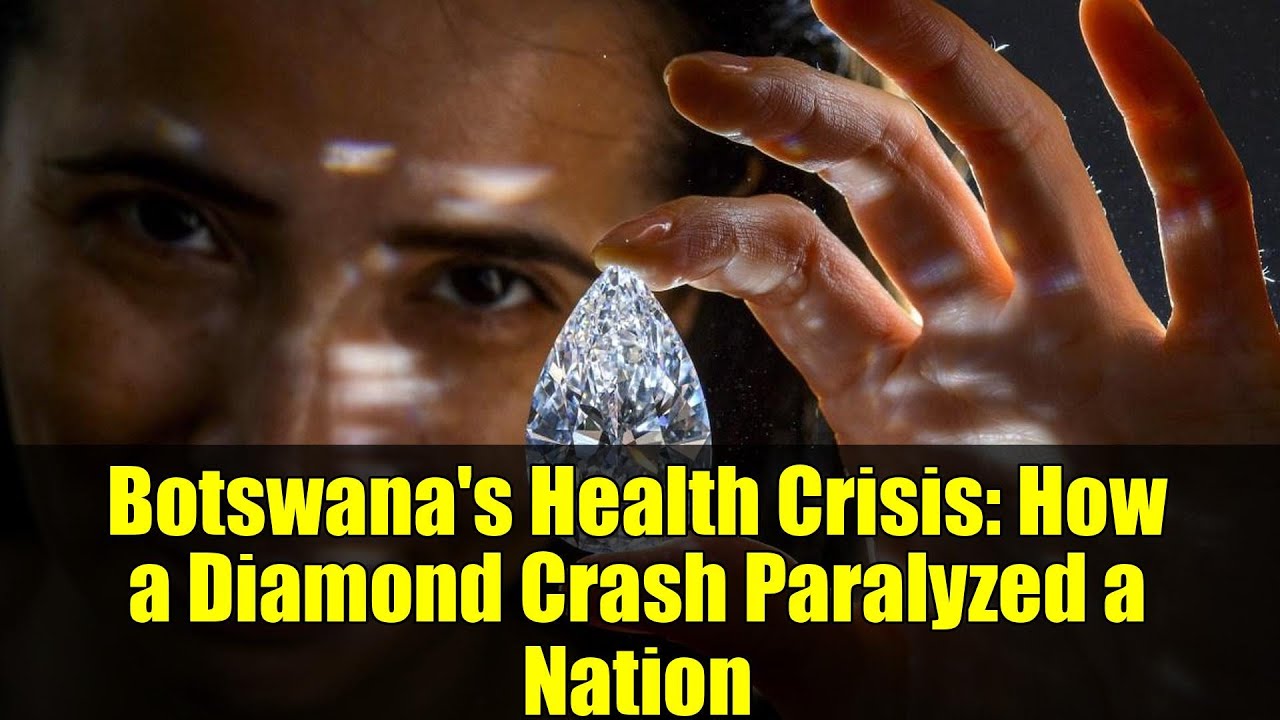ボツワナの健康危機:ダイヤモンド価格暴落が国家を麻痺させた経緯
Botswana’s stunning wildlife and sprawling savas, home to majestic elephants, lions, and antelope, paint a picture of natural abundance that captivates any visitor. Yet beneath this rich landscape lies a more complicated story, one of economic reliance on a single precious resource, diamonds. This deep dependency has shaped Botswana’s fate in surprising ways. And right now it’s contributing to a serious public health crisis. For decades, Botswana’s economy has leaned heavily on its diamond wealth. But here’s where it gets controversial. This dependence might have gone too far. Last year, Dumaboko, the opposition leader at the time, seized on this vulnerability by campaigning vigorously to diversify the nation’s economy away from diamonds, pointing to a global slump in diamond demand as a warning sign. His message struck a chord, leading to a landslide victory that unseated the party that had ruled since Botswana gained independence from Britain nearly 60 years ago. Yet despite this political shift, Boo’s ambitious goal to reshape Botswana’s economy has faced enormous obstacles. Just recently on live television, President Boo, a Harvard educated leader, made a startling announcement. Botswana, often hailed as one of Africa’s most stable democracies, was confronting a national public health emergency. Economists have traced the shortage of crucial medicines and medical supplies directly back to the downturn in diamond sales and revenue. The central medical stores managing the supply chain have completely failed, said Boo during his televised speech. As a result, health supplies across the entire country have been severely disrupted. This crisis has hit the health sector hard. The Ministry of Health reported that essential drugs for treating cancer, diabetes, tuberculosis, and reproductive health are running dangerously low. Even basic medical necessities like bandages and sutures are in short supply. Because of this strange situation, hospitals have had to cancel elective surgeries affecting countless patients. President BCO didn’t hold back his frustration, directing sharp criticism at Debeers, the multinational diamond company partly responsible for Botswana’s diamond extraction. With diamond sales revenue plummeting, Boo questioned their performance and hinted at the government potentially taking over diamond sales, saying, “If the diamonds exist, how can the country be broke? They aren’t being sold properly. Who’s selling debeers? If they’re failing to do their job, perhaps the government should intervene and manage the sales ourselves. To tackle the emergency, Boo announced the establishment of a 13.8 million pound emergency procurement fund with the military stepping in to ensure the distribution of vital medicines is handled efficiently. However, economists like Brendan Vera from Oxford Economics Africa warned that simply taking control won’t solve the underlying problem. The global diamond market itself is struggling, a reality tied to changing consumer preferences. Vera explained, “Botswana’s government depends heavily on diamond revenues, and with diamond prices currently bottoming out, their finances are extremely strained. Public health services, which many citizens rely on, are a significant government expense. And when funds dry up, services inevitably suffer. Historically, Botswana’s diamond reserves discovered shortly after independence in 1966 have generated about 80% of the country’s foreign earnings. But with global demand waning, authorities have been forced to downgrade their 2025 economic growth expectations. The key player Deb Swana, a joint venture with Debeers, has even paused operations at several mines and saw nearly a 50% drop in sales revenue last year. Adding to the complexity is the rise of synthetic diamonds, often viewed as a more ethical and affordable alternative to natural stones. This shift has intensified pressures on the traditional diamond market. Synthetic diamonds have played a big role in this crisis, Vera noted. Given their appeal and lower cost, natural diamond prices might not rebound anytime soon, if at all. This timing couldn’t be worse for President Boo, who while new in office and coming from a human rights law background, has inherited the formidable challenge of diversifying an economy long shackled to diamonds. He is pushing initiatives to invest in renewable solar energy, boost the digital economy and grow wildlife tourism sectors that could provide more stable and sustainable income for the country in the future. Unemployment remains a pressing issue with about 1 in four Botswana citizens currently jobless. This economic and social reality places even more urgency on diversifying away from diamond dependency. So here’s the question that might divide opinion among experts and citizens alike. Should Botswana rest control of its diamond industry from international players like Debeers? Or is the government’s focus better spent on building other sectors to reduce vulnerability? And beyond that, could an over reliance on a single commodity ever be justified in a country blessed with such natural and cultural riches? How do you see Botswana’s path forward? Should it double down on managing its diamond wealth or fully embrace a new economic identity? These are debates worth having, and your thoughts could shed new light on a nation’s struggle to shine beyond its diamonds.
Botswana, a nation built on diamond wealth, is facing a devastating public health emergency. In this video, we explore how a crash in the global diamond market has led to a catastrophic shortage of life-saving medicines, cancer drugs, and medical supplies. We break down President Boko’s declaration of a national emergency and his blame on De Beers for the 50% drop in sales revenue. Discover the real-world impact of economic dependency as elective surgeries are canceled and hospitals run out of basic supplies. We also delve into the root causes, including the rise of cheaper synthetic diamonds, and ask the critical question: can Botswana diversify its economy away from diamonds in time? This is a urgent story about natural resources, economic instability, and a fight for public health in Southern Africa.
Keywords: Botswana, Diamond Crisis, De Beers, Public Health Emergency, Medicine Shortage, Economic Diversification, Synthetic Diamonds, African Economy, Healthcare Crisis, President Boko, Debswana, Oxford Economics, Natural Resources, Botswana Economy.

